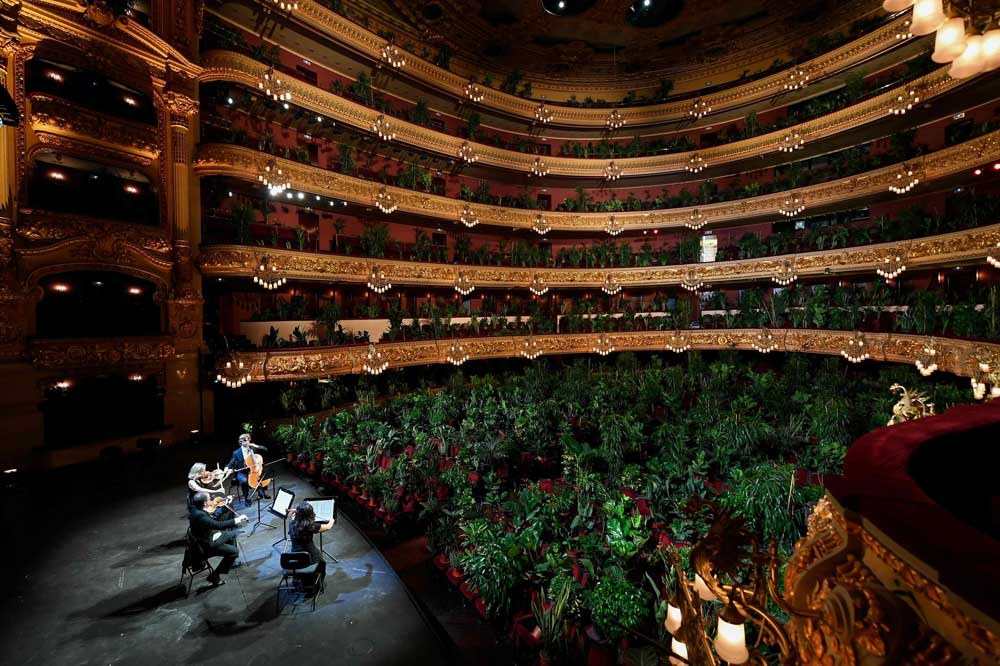
Unsurprisingly, seats at Barcelona's Gran Teatre del Liceu were sold out when it recently re-opened for its first concert since mid-March. However, it was 2,292 plants rather than the usual crowd of music lovers one would see at an opera house that got to enjoy the performance by the UceLi Quartet. While it was a leafy audience the string quartet was serenading, humans were also able to watch via a livestream as stirring music from Giacomo Puccini's "Crisantemi” (Italian for Chrysanthemums) was played.
The eight-minute concert called "Concierto para el Bioceno" opened with a tongue-in-cheek request in Spanish and in English for the audience to turn off their mobile phones and refrain from taking pictures during the show.
The potted plants at what was described as the prelude to the 2020-2021 season came from local nurseries. And each one will be donated to a local healthcare worker from Barcelona’s Hospital Clinic in recognition of their work during the COVID-19 pandemic. The plants will be gifted along with a certificate from conceptual artist Eugenio Ampudia. Ampudia, who is Artistic Director at the opera house, collaborated with the UceLi Quartet and curator Blanca de la Torre to organise the event that took place a day after Spain's three-month state of emergency came to an end.
“I heard many more birds singing," he said. "And the plants in my garden and outside growing faster. And, without a doubt, I thought that maybe I could now relate in a much intimate way with people and nature," Ampudia said.
A press release on the Liceu's website called it a “different perspective for our return to activity, a perspective that brings us closer to something as essential as our relationship with nature.” The release also said the opera house, one of the world’s largest and most important, “welcomes and leads a highly symbolic act that defends the value of art, music and nature as a letter of introduction to our return to activity."
It’s widely believed that classical music can benefit plants, especially by helping them grow faster and stronger. According to "Sciencing," one study revealed that plants that surrounded by music for six hours a day showed more growth than plants that weren’t exposed to any tunes.

















